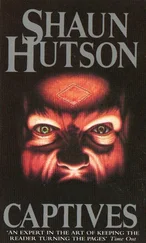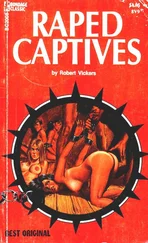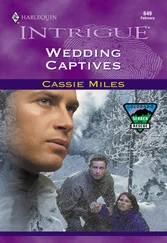Norman Manea - Captives
Здесь есть возможность читать онлайн «Norman Manea - Captives» весь текст электронной книги совершенно бесплатно (целиком полную версию без сокращений). В некоторых случаях можно слушать аудио, скачать через торрент в формате fb2 и присутствует краткое содержание. Год выпуска: 2014, Издательство: New Directions, Жанр: Современная проза, на английском языке. Описание произведения, (предисловие) а так же отзывы посетителей доступны на портале библиотеки ЛибКат.
- Название:Captives
- Автор:
- Издательство:New Directions
- Жанр:
- Год:2014
- ISBN:нет данных
- Рейтинг книги:3 / 5. Голосов: 1
-
Избранное:Добавить в избранное
- Отзывы:
-
Ваша оценка:
- 60
- 1
- 2
- 3
- 4
- 5
Captives: краткое содержание, описание и аннотация
Предлагаем к чтению аннотацию, описание, краткое содержание или предисловие (зависит от того, что написал сам автор книги «Captives»). Если вы не нашли необходимую информацию о книге — напишите в комментариях, мы постараемся отыскать её.
Captives
This is a moving account of a country shaken by communism and anti-Semitism and haunted by recent atrocities, from "a distinguished writer whose vision of totalitarianism is close to Kafka's cloudy menace, universal yet internalized" (Richard Eder,
).
Captives — читать онлайн бесплатно полную книгу (весь текст) целиком
Ниже представлен текст книги, разбитый по страницам. Система сохранения места последней прочитанной страницы, позволяет с удобством читать онлайн бесплатно книгу «Captives», без необходимости каждый раз заново искать на чём Вы остановились. Поставьте закладку, и сможете в любой момент перейти на страницу, на которой закончили чтение.
Интервал:
Закладка:
We were then in the last year of high school: Sebastian Caba had acclimated perfectly to his neighbors at the dorm. He became one of them and lost himself in the mass. He didn’t excel at anything. His attentive manner and his cordiality distinguished him. The intensity of my political participation was already descending toward neutrality, but it hadn’t gotten there yet. I’d become despondent when I conjectured that the enthusiasms that had projected me to the front would vaporize so quickly.
Looking at Sebastian, I’d see his father among the workers pushing their barrows among colossal vaults of ice. I’d imagine the nightmare of putting in a hard day’s work under those Gothic elevations. I kept seeing the laborers’ exhaustion, their frozen faces as wasted at the start of the shift as when they all trooped back to the light. I’d hear their blows hacking the great castle of ice, their voices seeking each other among the blocks probed by picks and drills. And so I went on feeling them: abandoned by their kind, aged, occasionally lifting their eyes to some worker nearby, who might die one day, buried among the glaciers of salt.
Our new classmate seemed worthy of the greatest attention. My desire to climb down into those vast, refrigerated burial vaults was greater, though, than my curiosity about the newcomer — greater, too, than any curiosity about the larger social experiment in generosity, compromise, and guilt. I was in a hurry to meet anything that might put the blindness of our poor textbooks to shame, along with our unfledged, youthful ignorance.
The visit to the salt mine could have been arranged right away if I’d spoken with Father. Only, I wasn’t in any shape to attract his suspicions, again.
• • •
Two years had passed since the end of the war. Only at the end of the first year of peace did we return from the camp on the steppe where we had been banished. My new sister was born several months after that.
My parents’ whispering came through the half-open door. I understood they were coming up with names — peculiar names: Katyusha, Sveta, Agnita. Sveta sounded Swedish, masculine. The others were downright incomprehensible. They never had much originality, so I didn’t understand what had gotten into them, or why it was necessary to have another child. I went into their room. The plank bed, somewhat larger than mine, had been made by the carpenter neighbor. The familiar old dining table on which we now ate and the three chairs were all in my room, together with the cupboard made of planks. Ileana, our friend and neighbor, had hidden our beautiful old table and chairs from before our deportation and gave them back when we returned.
There was a mirror and a baby carriage in my parents’ room. Mama was in bed, convalescent. My parents looked at me. They understood. They gave each other a look, and Father, who was sitting on the edge of the bed, turned toward me.
— What do you think? Is there a name that you like?
— No.
If I were smiling, they might have taken me seriously. But the frown on my face and my solemn answer seemed childish.
— Really, what would you like?
— Dona.
All the blood suddenly fled from my mother’s cheeks. Realizing a crisis might break out, Father clasped his hands together tightly and gave me a disdainful look.
— What do you remember about Dona? Do you even know what she looked like?
Indeed, more than a few years had passed, but I hadn’t forgotten: she was slender and wore the crown of a great, black chignon. She had large eyes, black and grey, and thin white hands that stroked lightly, like a rustle. Dona was almost a young lady although she was just a kid. She swayed, like a wonder that would have to disperse, and was the first to scatter. She clasped my hand, on parting, in despair. I forgot how the next girls who were sacrificed looked. They were almost young ladies too, and slight as chicks, like her. Their eyes had grown huge and gray, transparent. I don’t remember how they all looked. They were light, made of glass and air; they separated from us in despair. Dona would have done anything if she thought it would help save me. Dona wouldn’t have believed a word the executioners said: she left us in a state of despair. She had great black and grey eyes, light hands. She wore a crown — heavy and black. We have been separated for so many years, and she still has great, black eyes.
Footsteps in the kitchen. The noises came just in time. Father opened his hands and stood up happily. I was near the door. The guests were beside me in an instant. I shrank against the wall so they could pass: Ileana and Virgil Mehedinţi, our friends. Tall, very tall, white hair, black mustache. Like a highwayman. Small, thin, fragile as a doll, with brown hair and white skin, Ileana stopped conversations when she appeared among strangers, and it was as if amazement circled her delicate being. . people’s knees gave way under her beauty and charm. I snuck into my room. Just then the baby carriage began to fill with the baby’s cries. They fidgeted around her; then everyone quieted down. Father went into the kitchen to make tea. He looked at me. He stopped for a few moments to think.
— Dolores, would you like that?
— No.
He went on his way. Sveta, Dolores, Agnita, Katyusha: I’d have liked to know where he found such names. If these were names, it meant that the baby could be anything. Why not Dona? Or Eva? If everything still had to be forgotten and started over from scratch, as Father kept saying, then Eva sounded very good. He went on repeating so many times a day: “we have to forget in order to start anew.” Fine then, Eva was the very thing. There would be no need to go on inventing complicated foreign names. We had one all lined up. If I’d have told him so, he would’ve looked down on me from his lofty height, convinced I didn’t remember a thing. He’d already headed back with tray and cups. I heard them talking till late in the evening. I think it was then that they first focused their still uncertain, vaguely troubled attention on me.
• • •
So. . Ileana Zaharia. She had been our neighbor before the war. She used to work with my parents at the bank. She’d invited us kids over to her place many times. She used to take care of us, playing, running around with us, and giving us baths. She had much more patience than Mama. She entertained us with stories in the evenings. She loved us. After our disappearance she tried to save our things, and even tried to find us, to contact us. Someone denounced her for wanting to help. She was lucky: they acquitted her for lack of evidence. Her obstinacy was not only proof of her enormous contempt for danger and her fidelity to us: there was something else, too. Amid the general hatred, she had felt alone, astray — besmirched. She was so incompatible with the morbid chaos that she seemed to come from another world that denied theirs.
Ecstatic, her cries met the cadavers dressed in rags that paraded down the city’s barely pacified streets as the deportees returned to the living. She was the first to see us again, the first who wanted to see us again. During those early months she fed us in her own home, gave us everything she had. She tried to get us used to life. She listened to me for evenings on end, and asked me to tell her about my sisters Dona and Eva over and over again — about every day and about their last days. Again and yet again: she wasn’t afraid that I would die as a result. Relentlessly, she went on asking for more details.
She used to come with the young carpenter who hadn’t hesitated to make us the cupboard and beds even though he was already quite an important person. A tall, powerful man with white hair, he convinced Father that he didn’t have the right to remain a modest bank clerk, and that he was destined to do something else. She repeated his words — she was completely taken with him back then, several months before their marriage. The calls for change were bursting out on all sides, catalyzing everyone. After hesitating for a while, my parents quickly found themselves a mode of frenetic devotion. I was ready for another start, too. The eyes of the boy of eleven or twelve were burning with enthusiasm.
Читать дальшеИнтервал:
Закладка:
Похожие книги на «Captives»
Представляем Вашему вниманию похожие книги на «Captives» списком для выбора. Мы отобрали схожую по названию и смыслу литературу в надежде предоставить читателям больше вариантов отыскать новые, интересные, ещё непрочитанные произведения.
Обсуждение, отзывы о книге «Captives» и просто собственные мнения читателей. Оставьте ваши комментарии, напишите, что Вы думаете о произведении, его смысле или главных героях. Укажите что конкретно понравилось, а что нет, и почему Вы так считаете.












